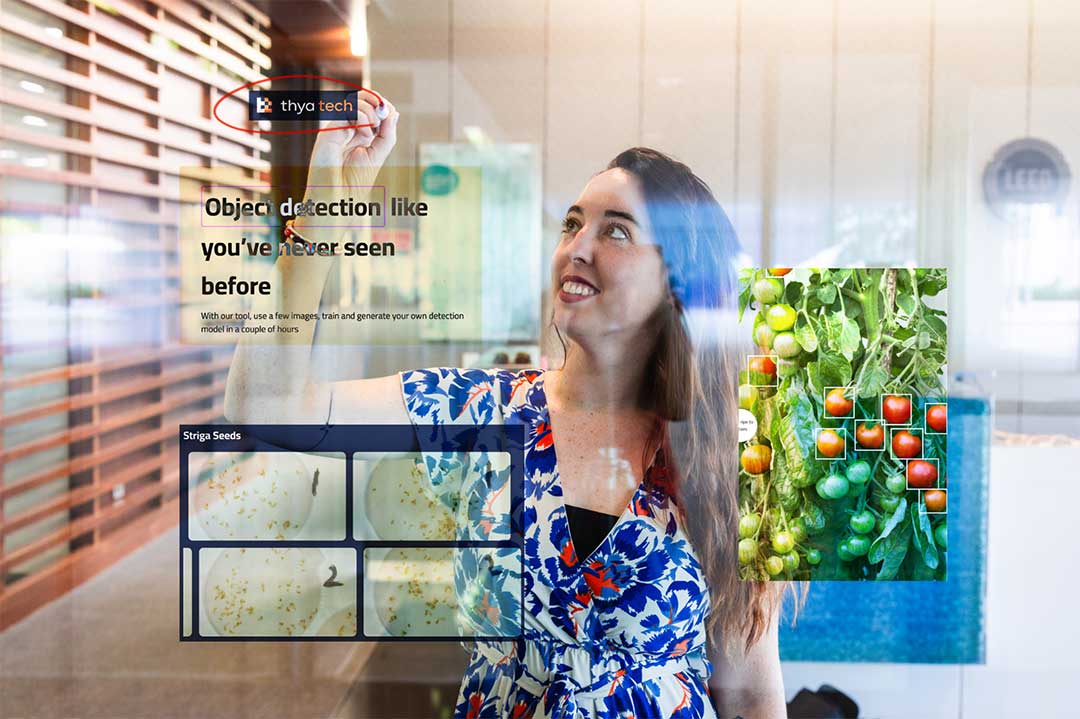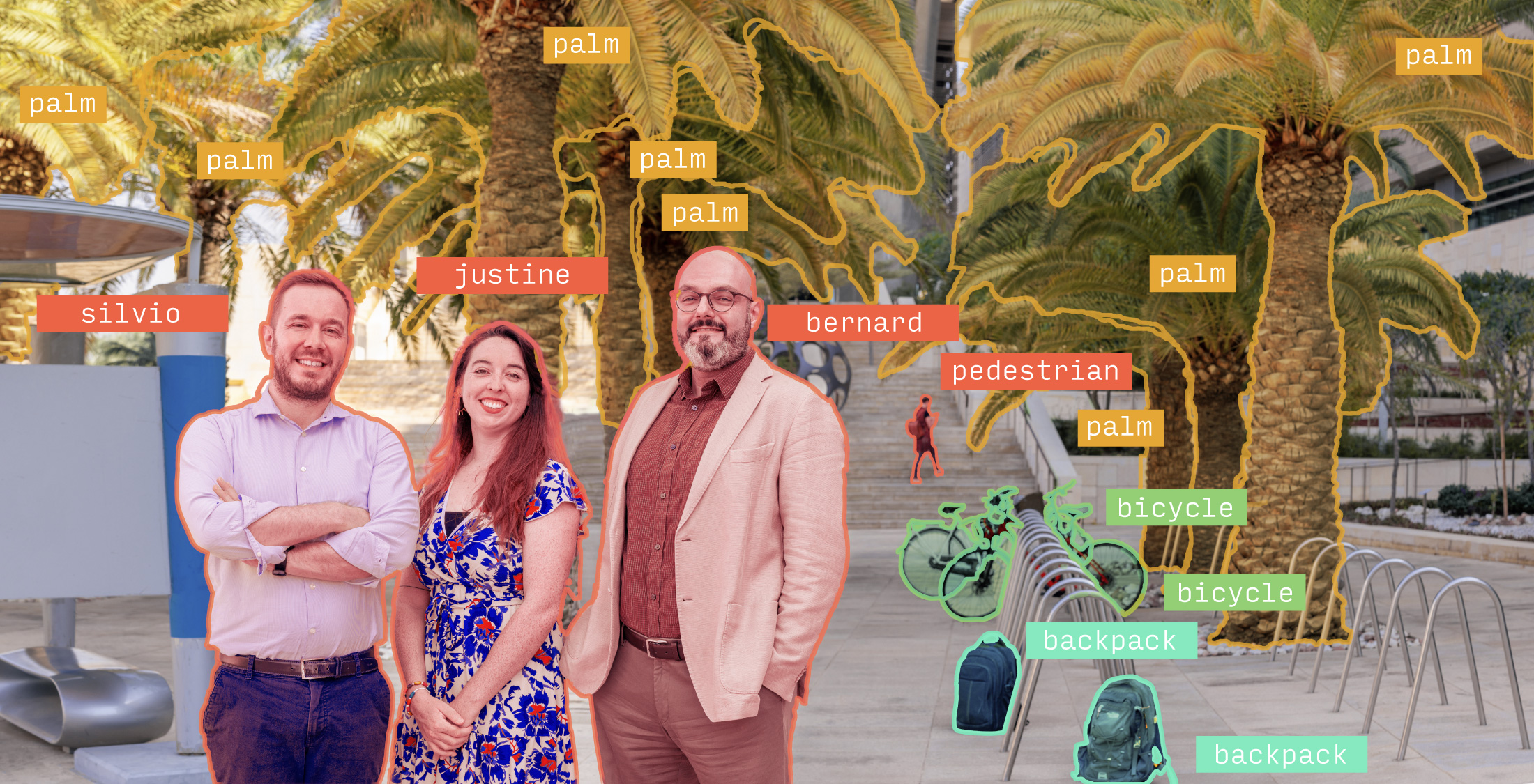Counting the seeds of success

A willingness to try anything and an adventurous spirit have taken Justine Braguy on a journey from plant science Ph.D. student to CEO of AI startup Thya Technology.
Braguy came to KAUST in 2016, with a suitcase and a plan to stay for six months after starting a joint Ph.D. degree in Germany. But it was not long before she transferred her degree to Salim Al- Babili’s lab at KAUST, where she spent the next five years investigating the role of plant hormones, known as strigolactones.
One of Braguy’s tasks was to optimize a routine experiment for her Ph.D., which required counting thousands of tiny seeds by hand — a dreary process that can easily take days. A desire to do this more efficiently led to her first encounter with AI.
Together with the invaluable help of Silvio Giancola — who worked in computer vision and AI — and his supervisor Bernard Ghanem, they devised an AI-based tool called SeedQuant to count Striga seeds automatically from still microscope images.
In 2021, while writing up the final chapter of her doctoral thesis and pondering what to do next, Braguy met with Giancola, who had just passed the first selection rounds of KAUST’s TAQADAM startup accelerator program.
“After five years working on my Ph.D., I realized that I did not want to keep working in a lab,” says Braguy, who was also developing her creative side in design, scientific illustrations and video animation. “I had my career plan prepared but then I met Silvio in the campus canteen, and I offered to help him on his TAQADAM pitch.”
Soon after, Braguy became a co-founder, along with Giancola and Ghanem, of the new company Thya Technology. Their product is a user-friendly online platform that facilitates automation of the analysis of large images and video data sets. Users can upload and label their own images to rapidly generate AI detection models with a click, eliminating the need for coding.

From left: Silvio Giancola, Justine Braguy and Bernard Ghanem. They joined forces and expertise to found Thya Technology, a user-friendly platform for automating image and video analysis.
“From a background in biotech and plant science, I’m now full-on business and AI and figuring it out on the way”, laughs Braguy. “Luckily I have a great tech team that is doing amazing work on building our core technology.”
Thya Technology’s win in the TAQADAM showcase of 2022 combined with several research and translation grants from KAUST has enabled the transition from an idea to a company, which officially became a Saudi legal entity in September 2022.
“A favorite thing about my job is having the freedom and ability to shape my own work environment” says Braguy. “My priority is to place the people working with me at the center of Thya Technology and hope that everything else works out from there.”
While a challenge for her is learning to ask for help, a big obstacle for the company is navigating the rapidly changing landscape of Saudi laws and regulations, which are not always designed for startups and the fast pace of business.
“Finding the right customers for our technology is particularly tricky, because we are solving a problem that transcends disciplinary and geographical boundaries,” says Braguy. “We are only a small team, so we have to focus our energy.”
Thya Technology recently signed up its first customers: several research laboratories at KAUST, including in her former Ph.D. research center, the Center for Desert Agriculture (CDA). Braguy says helping her former colleagues with their research is rewarding. “The AI tools available through our platform can really make a difference in the fields of biology and save a significant amount of time.
“To give you an idea, some of our customers need to automatically analyze more than 13,000 images, which is equivalent to more than 100 hours of manual image analysis. Imagine all the other things you could do with a spare 100 hours.”

